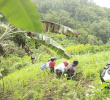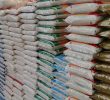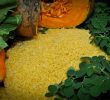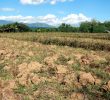Masipag said that when farming first became dependent on chemicals, synthetic and imported inputs that were institutionalized through the green revolution program in 1960s, the incidence of poverty and hunger steadily increased in the countryside, especially among the farmers.
By ALEX D. LOPEZ
Davao Today
DAVAO CITY, Philippines — Costly imported inputs and chemicals in the local agriculture is to be blamed in the higher incidence of hunger, a Cotabato-based advocacy group claimed.
In a statement sent to davaotoday.com, Magsasaka at Siyentipiko para sa Pag-unlad ng Agrikultura (Masipag) in Cotabato province, cited the latest survey by the Social Weather Station (SWS) conducted last August 24 to 27 for the Third Quarter 2012 survey.
SWS reported that hunger incidence in the country is 21.0 percent or an estimated 4.3 million families. This is an increase of three points from the May 2012 survey which revealed that 18.4 percent of Filipinos experienced involuntary hunger. The latest SWS figures are similar to the 21.5 to 23.8 percent range of September 2011 to March 2012. In Mindanao, SWS found that families affected by hunger rose by 2 points, from 28.3 percent (est. 1.4 million families) to 30.3 percent (est. 1.5 million families).
“The results of the survey only prove that the existing system of agriculture in the country does not answer to the needed food security of our populace,” said Ramer Tandoy of Masipag in Cotabato.
“Ang sistema mismo sa atong agrikultura mao ang usa sa mga nag-unang hinungdan nganong taas kaayo ang insidente sa rural poverty ug kagutom sa han-ay sa mga mag-uuma (The agricultural system itself is one of the main reasons for the increase in the poverty in rural areas and in hunger among farmers),” Tandoy added in the statement.
Masipag said that when farming first became dependent on chemicals, synthetic and imported inputs that were institutionalized through the green revolution program in 1960s, the incidence of poverty and hunger steadily increased in the countryside, especially among the farmers.
The situation worsened, Masipag added, when the government agreed to commercialize the genetically-modified (GM) corn seeds in 2002. According to a recent joint study by Masipag and independent think-tank Ibon Foundation, GM corn increased the required farm inputs by 40 percent and posed health dangers to farmers and consumers in general.
Masipag also said that crop-use conversion, the planting of export crops such as oil palm, Cavendish bananas, pineapple and the genetically-modified crops are not solutions to the problem of poverty and hunger.
Masipag called on farmers to practice organic farming. “Ang kahimtang namong mga mag-uumang nag-organic farming maoy buhing kamatuoran sa maayong impact sa organic agriculture (We farmers, who practice organic farming, are living proof to the positive impact of organic agriculture).”
Organic farming assures farmers of food security, control to seeds and technology, and above all, an increase in income of up to 50 percent, the advocates added.
Meanwhile, Jose Graziano da Silva, the director general of Food and Agriculture Organization (FAO) of the United Nations said the continuing food price volatility requires improved global governance of food security because food prices and volatility have increased in recent years.
Da Silva was addressing a ministerial meeting on food volatility in Rome, Italy that coincided with the celebration of World Food Day. “In the globalized world we live in, it’s not possible to have food security in one country alone,” he added.
According to the FAO, the meeting covered three main topics that included: How transparency in agricultural markets can be increased and how international action can be better coordinated; How the increasing demand for food can be addressed; and How the effects of excessive food price volatility on the most vulnerable can be limited.
The ministerial meeting was attended by ministers from countries such as Bangladesh, Brazil, Chad, Ecuador, Egypt, Ethiopia, Eritrea, France, Germany, Greece, Guatemala, Hungary, Japan, Lebanon, Mozambique, Netherlands, Papua New Guinea, Portugal, Sierra Leone, Spain, Sri Lanka and United Republic of Tanzania. (Alex D. Lopez/davaotoday.com)
GMO, World









